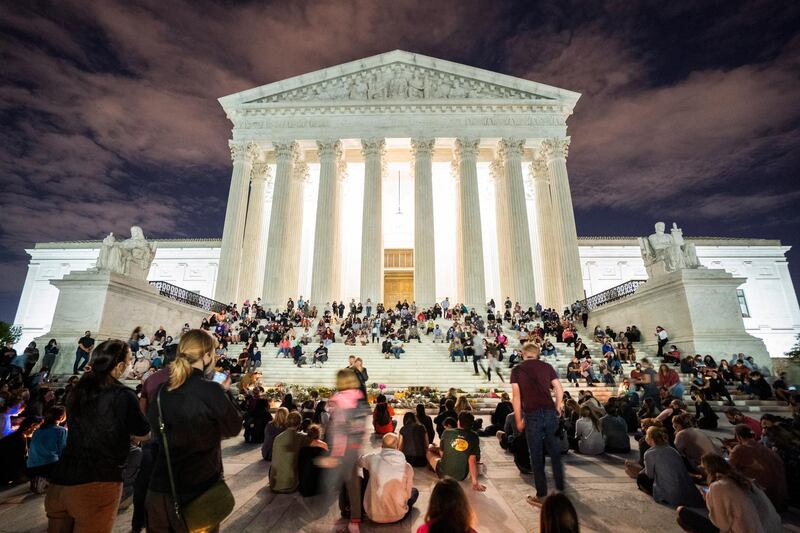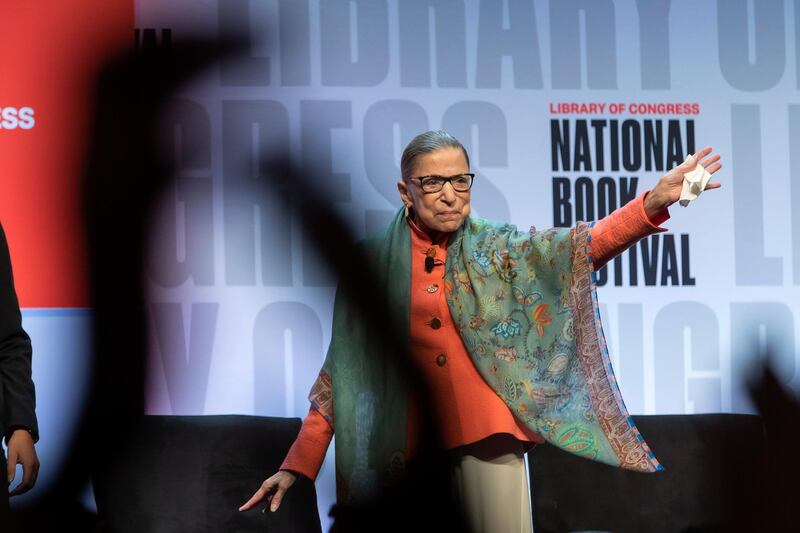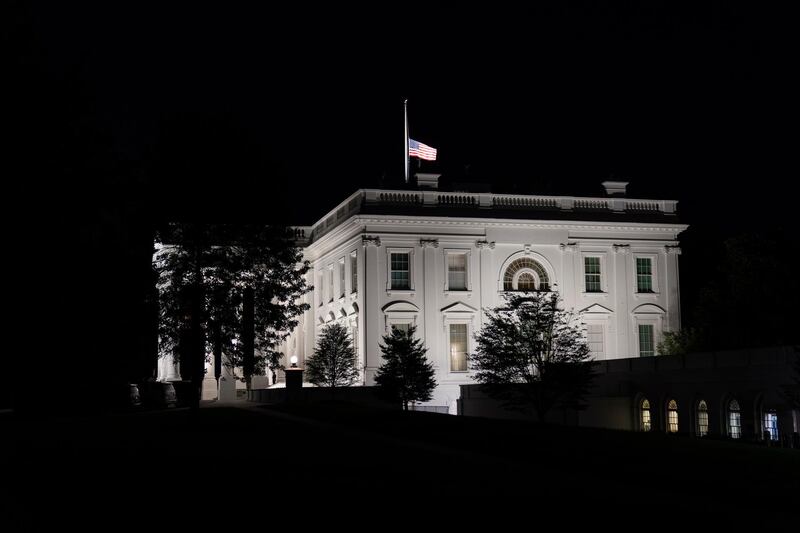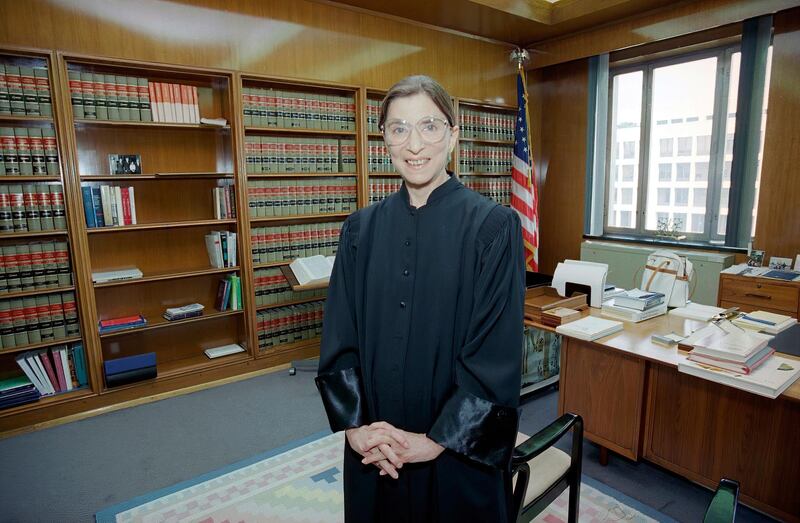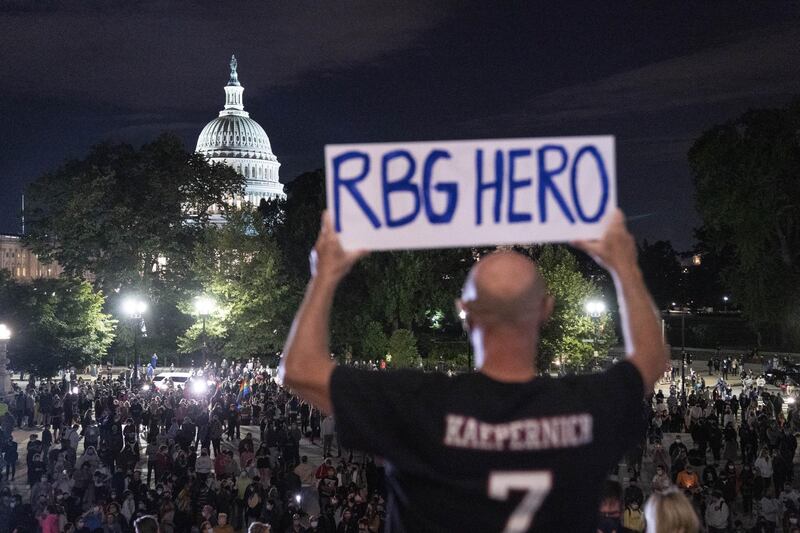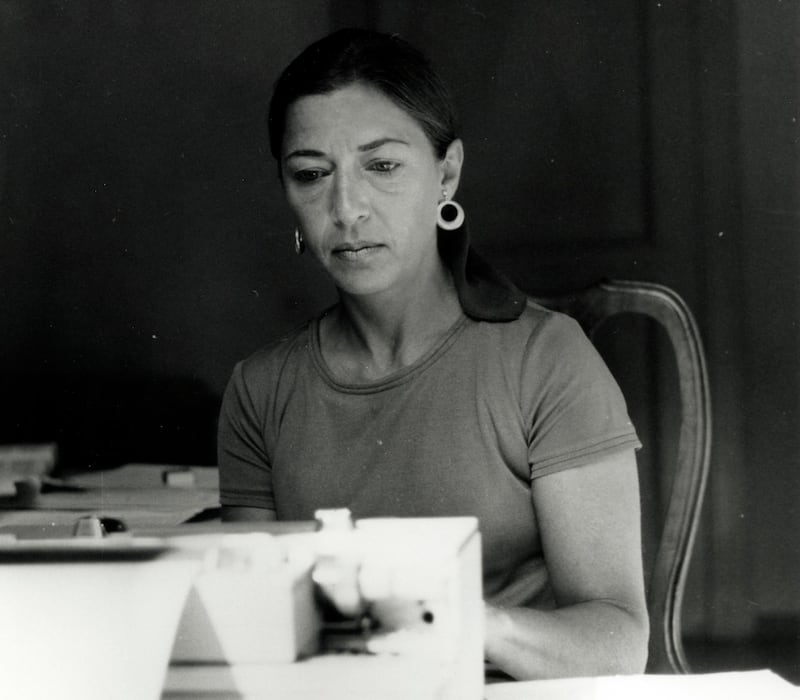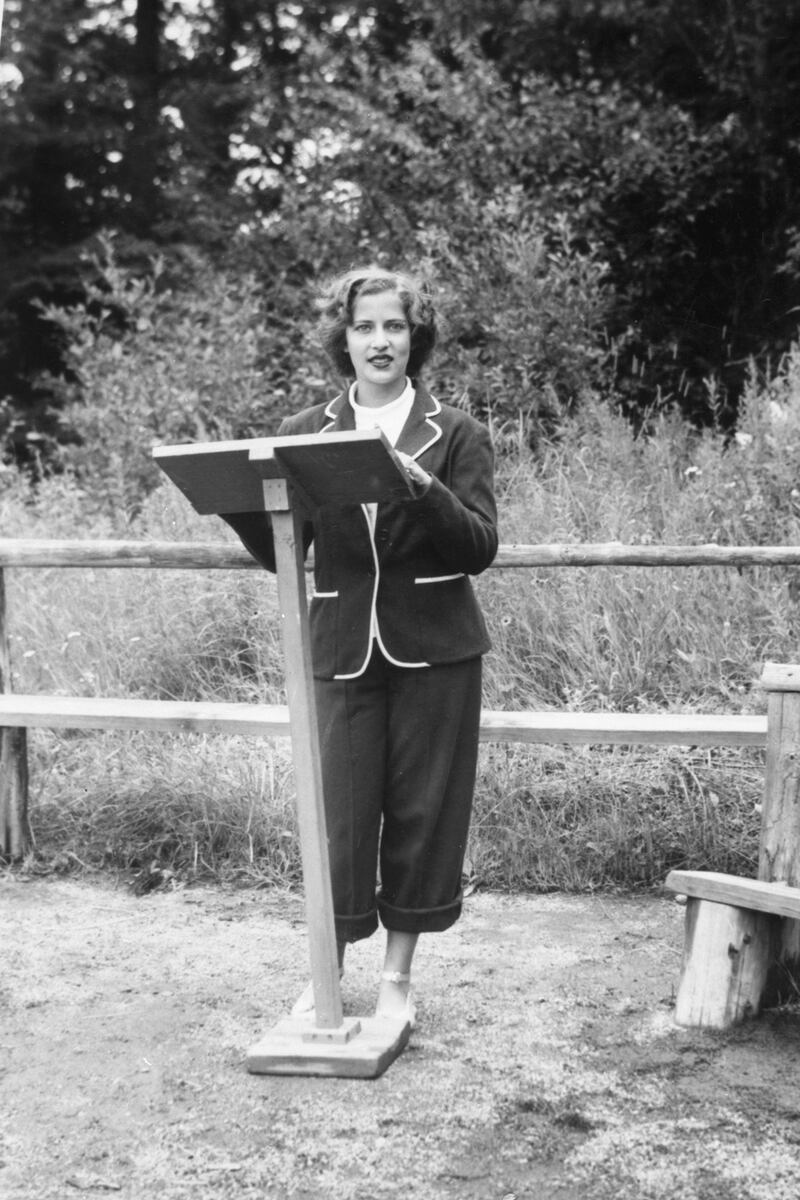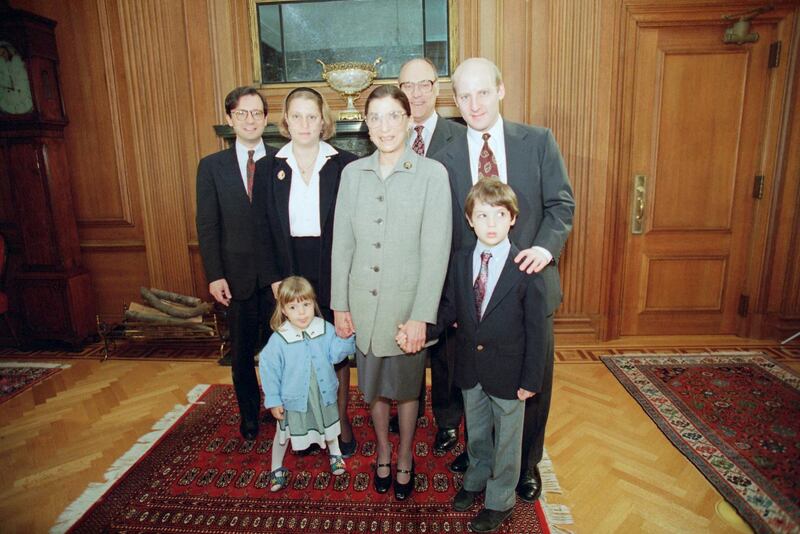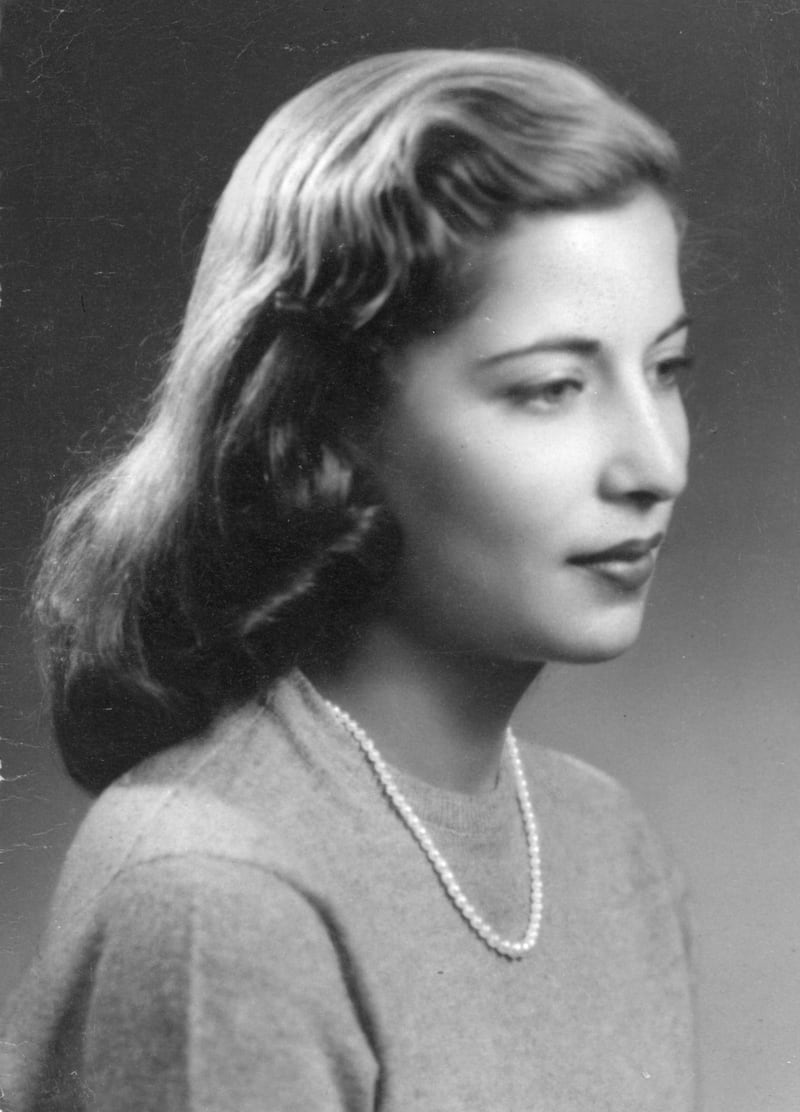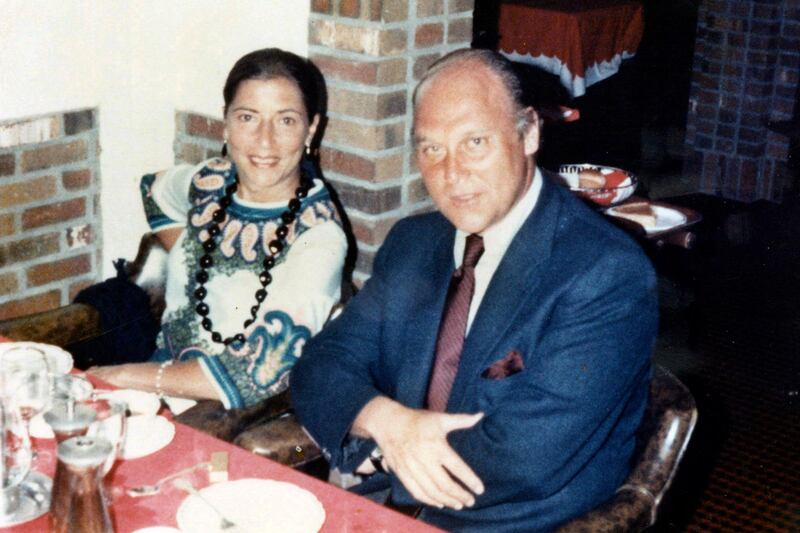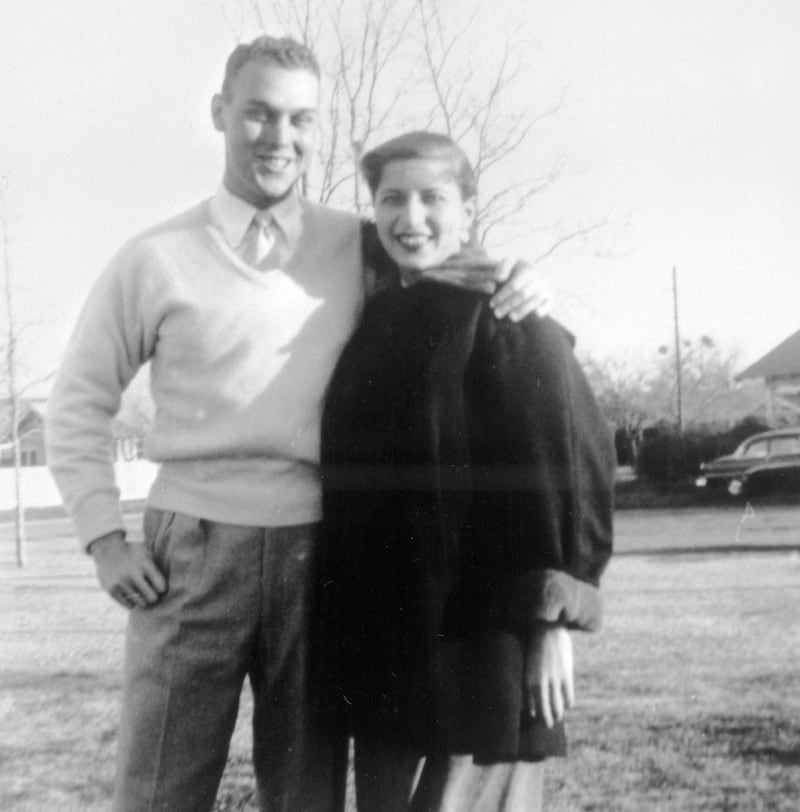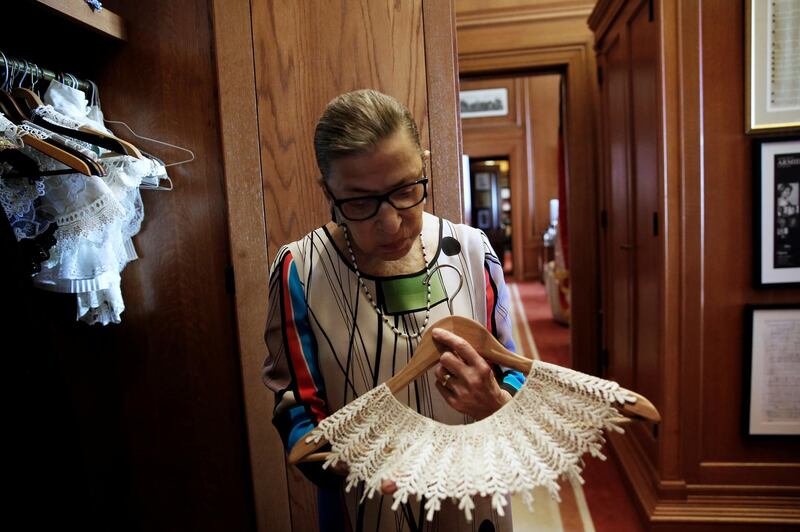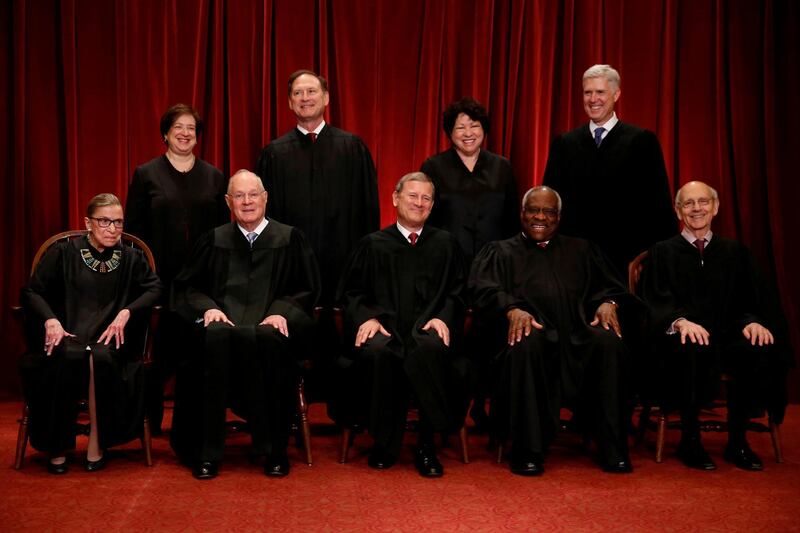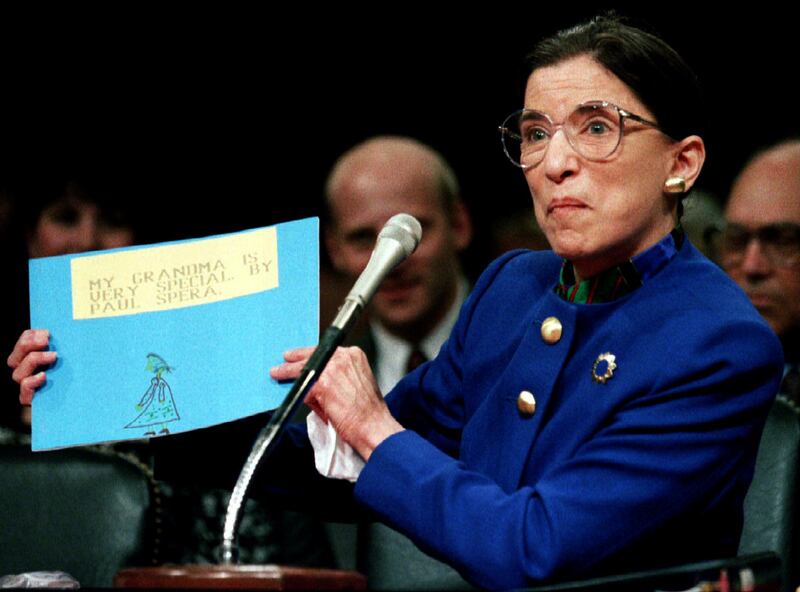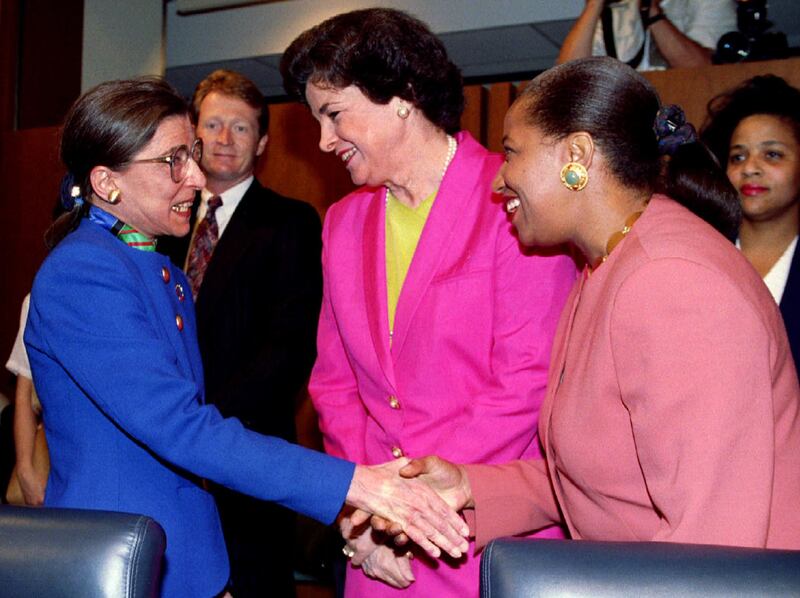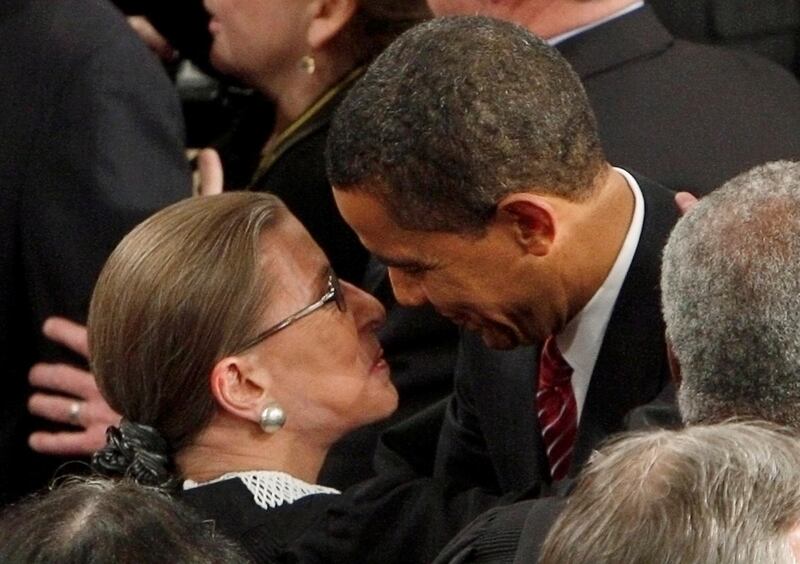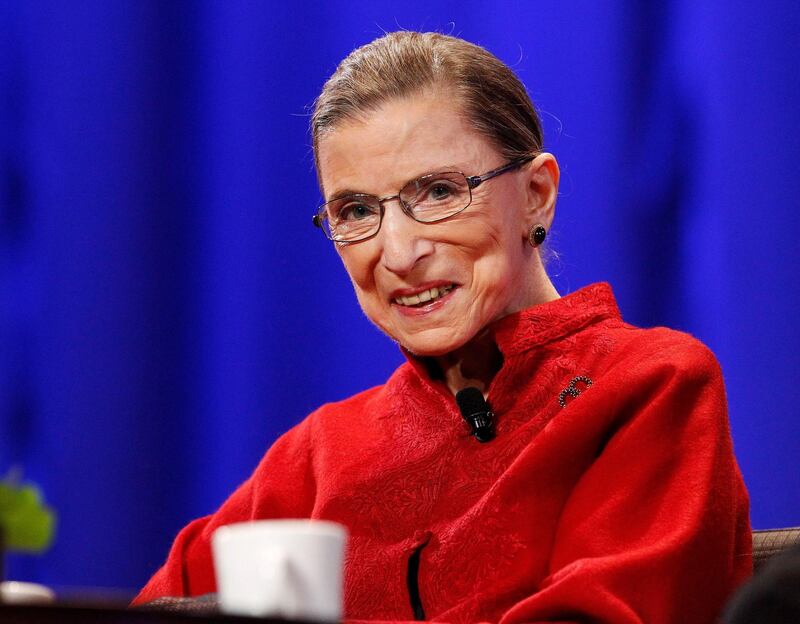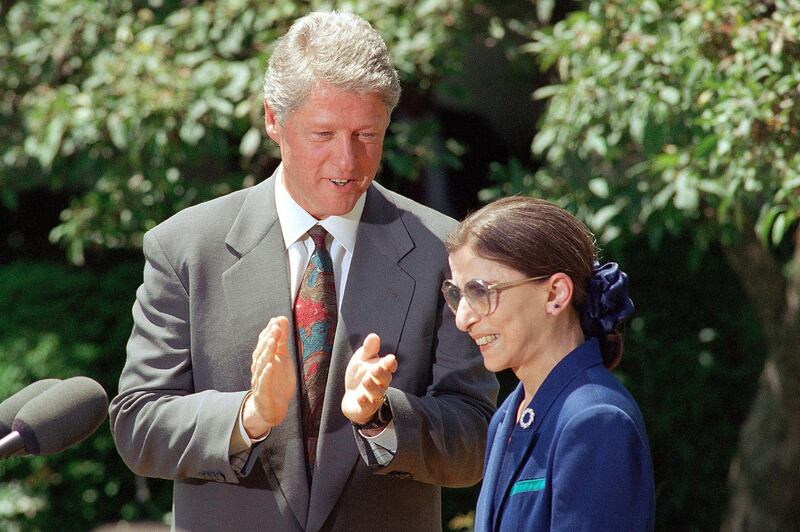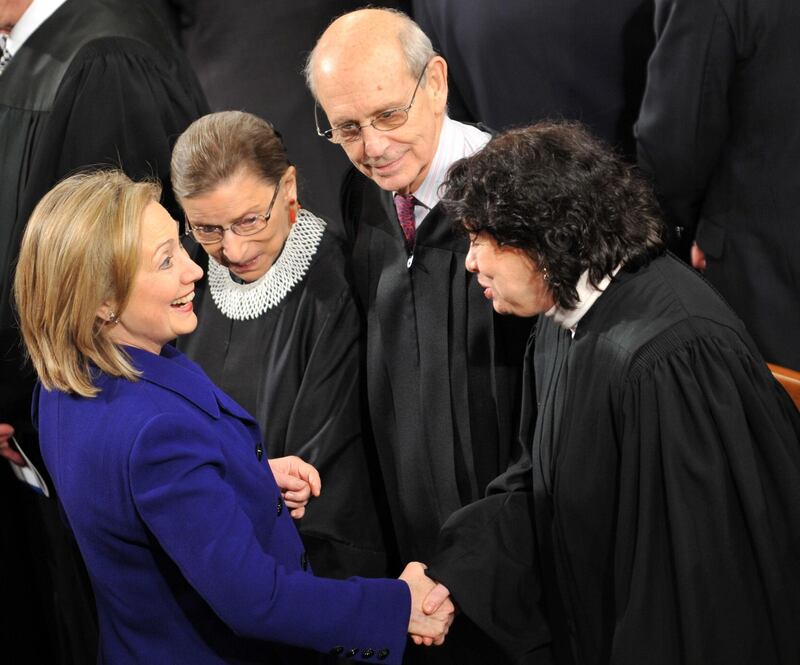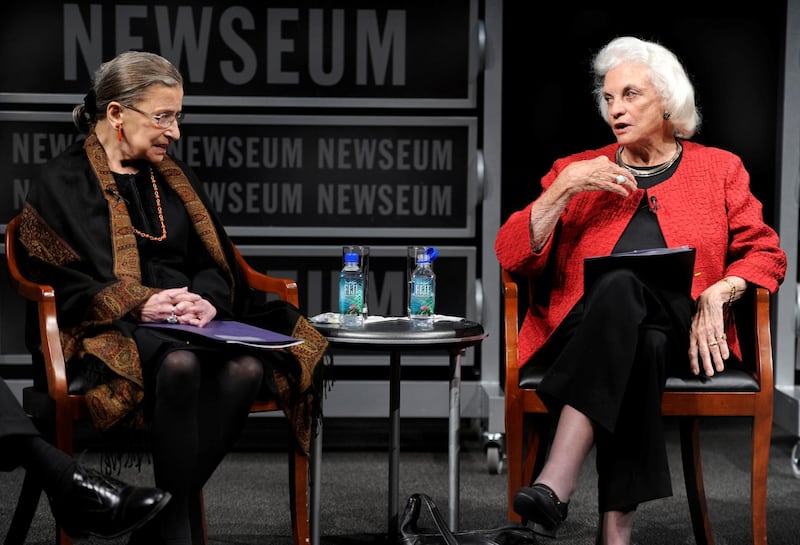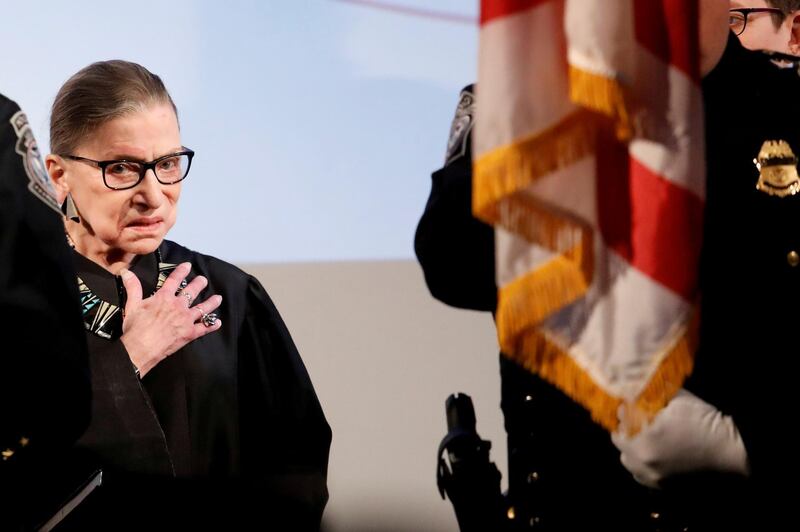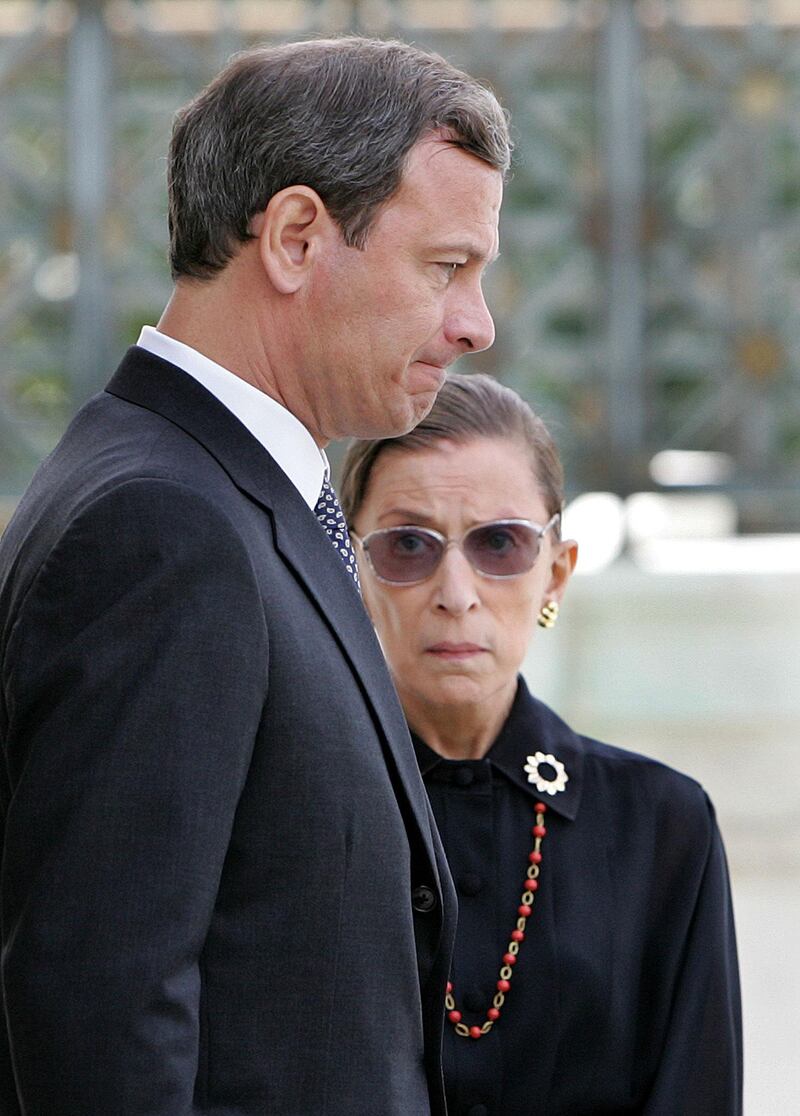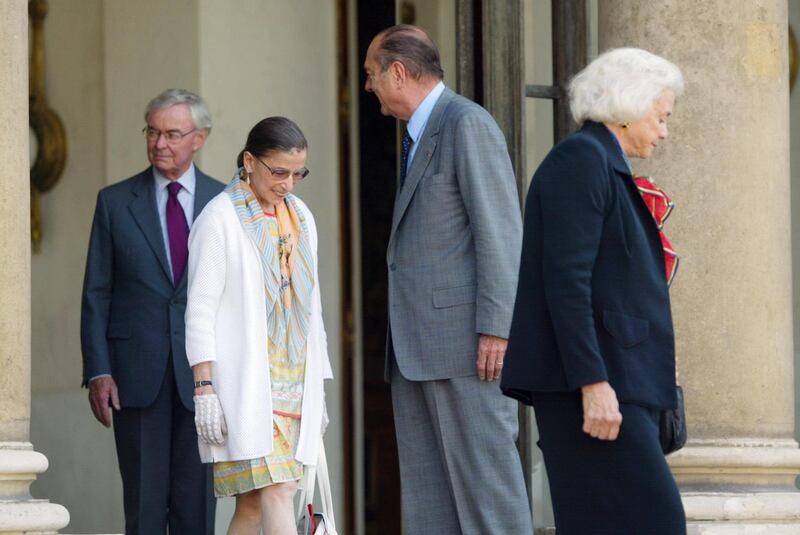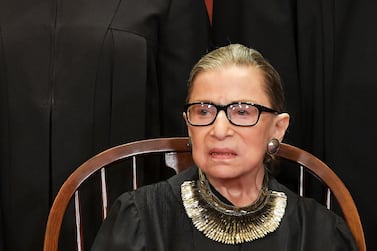Justice Ruth Bader Ginsburg, a trailblazing feminist icon and a steadfast liberal voice on the United States Supreme Court since the early 1990s, died on Friday aged 87 after a lengthy battle with cancer.
Known to her legion of fans as RBG, Ginsburg was lauded for her decades-long commitment to justice and women’s rights, drawing praise from across the political divide, including from President Donald Trump, who dubbed her a “titan” with a “brilliant mind”.
Such non-partisan displays may be short-lived. Ginsburg leaves behind a vacant seat on a key judicial body in a high-stakes election year, offering Mr Trump the chance to expand the court’s conservative majority with a rare third appointment in his four-year presidential term.
“Our nation has lost a jurist of historic stature,” the court’s Chief Justice John Roberts said in a statement.
“We at the Supreme Court have lost a cherished colleague. Today we mourn, but with confidence that future generations will remember Ruth Bader Ginsburg as we knew her — a tireless and resolute champion of justice.”
US Supreme Court Judge Ginsburg dies at age 87
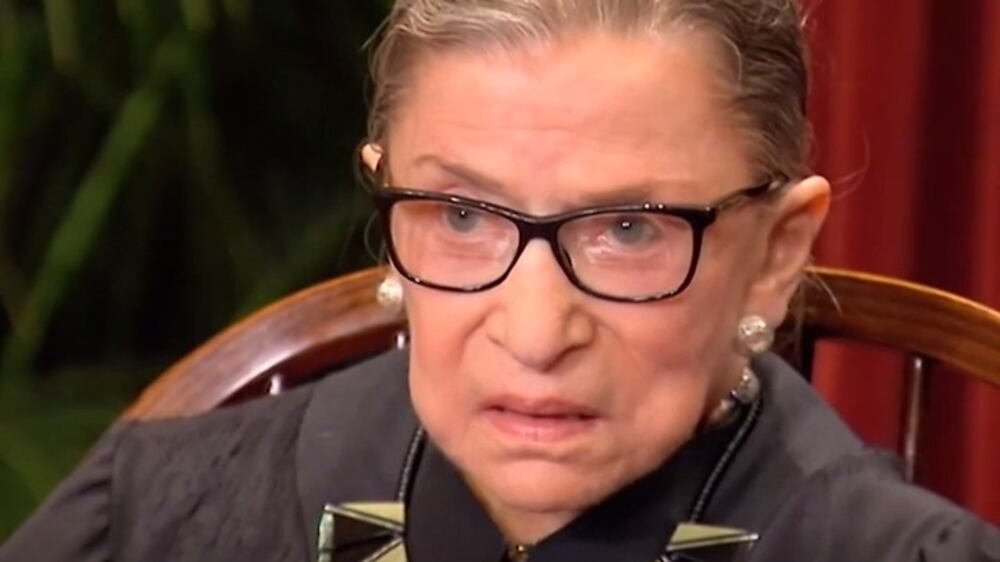
Within hours of the court’s statement, crowds gathered outside the elegant marble edifice in Washington to pay their respects, lighting candles, waving rainbow flags for sexual and gender rights and chanting "RBG".
Ginsburg was born to Jewish immigrant parents in Brooklyn, New York City, in 1933. She rose from her working-class background and fought sexism and stereotypes to study at a male-dominated Harvard Law School.
Despite finishing top of her class, Ginsburg struggled to get work upon graduation — which she attributed to being “Jewish, a woman and a mother”. She took several law jobs in the 1960s and in 1972 founded the women’s rights project of the American Civil Liberties Union (ACLU) and became Columbia Law School’s first tenured woman professor.
Anthony Romero, ACLU’s executive director, lauded Ginsburg’s legal activism in the early 1970s, when she led more than 300 workplace suits that “established the foundation for the current legal prohibitions against sex discrimination” in the US.
“She leaves a country changed because of her life’s work,” he said.
Ginsburg joined the Washington DC court of appeals under the Carter administration in 1980. In 1993, then US president Bill Clinton appointed her to the Supreme Court – the second woman ever named to the body after Justice Sandra Day O’Connor.
There, the 1.5m-tall lawyer played an outsize role in shaping policies on hot-button issues with progressive votes in landmark rulings on rights for women, gays, minorities and on safeguarding access to abortions and preserving the Obamacare healthcare law.
Over a six-decade legal career, Ginsburg achieved unlikely celebrity status for a jurist. She was admired for her sharp legal instincts, her withering put-downs and – for those on the left – her progressive votes on divisive social issues.
In recent years, she became a cult figure among #MeToo-era feminists for her decades-long crusade for women's rights. In the 2018 documentary about her, RBG, she said: "I ask no favour for my sex. All I ask of our brethren is that they take their feet off our necks."
Ginsburg suffered from bouts of cancer from the late 1990s and grew increasingly frail. Democrats had long feared that her death could tip the balance of the nine-member court, which already had a 5-4 conservative majority, further to the right.
According to the court, Ginsburg, a widowed mother-of-two, died on Friday evening from complications of metastatic pancreas cancer surrounded by her family at her home. She will be buried in a private ceremony at Arlington National Cemetery.
She was praised by several former presidents. Jimmy Carter called her a “beacon of justice”; George W Bush said she had "inspired more than one generation of women and girls"; Barack Obama called her a “relentless litigator and an incisive jurist”.
“Justice Ginsburg helped us see that discrimination on the basis of sex isn’t about an abstract ideal of equality; that it doesn’t only harm women; that it has real consequences for all of us,” Mr Obama said in a statement.
Justice Ruth Bader Ginsburg fought to the end, through her cancer, with unwavering faith in our democracy and its ideals. That’s how we remember her. But she also left instructions for how she wanted her legacy to be honored. My statement: https://t.co/Wa6YcT5gDi
— Barack Obama (@BarackObama) September 19, 2020
But as the epitaphs were being emailed to journalists, US politicians quickly became embroiled in a debate over who would fill the court's empty seat – a job-for-life on a powerful body that both main parties seek to stack with political bedfellows.
Mr Trump, who seeks re-election on November 3, has already appointed two conservatives to the court. Supreme Court placements require confirmation by the Senate, where Mr Trump’s fellow Republicans have 53 of the chamber’s 100 seats.
There has been bad blood between the main parties over appointments since 2016, when the Republican-held Senate blocked Democratic President Barack Obama’s nomination of a moderate court judge in an election year.
Mr Trump’s Democratic challenger, Joe Biden, said that Ginsburg should not be replaced until after the coming election, telling reporters: “The voters should pick the president and the president should pick the justice for the Senate to consider.”
Prior to her death, Ginsburg even weighed in on her own succession. According to a National Public Radio report, she wrote in a statement to her granddaughter: “My most fervent wish is that I will not be replaced until a new president is installed.”
